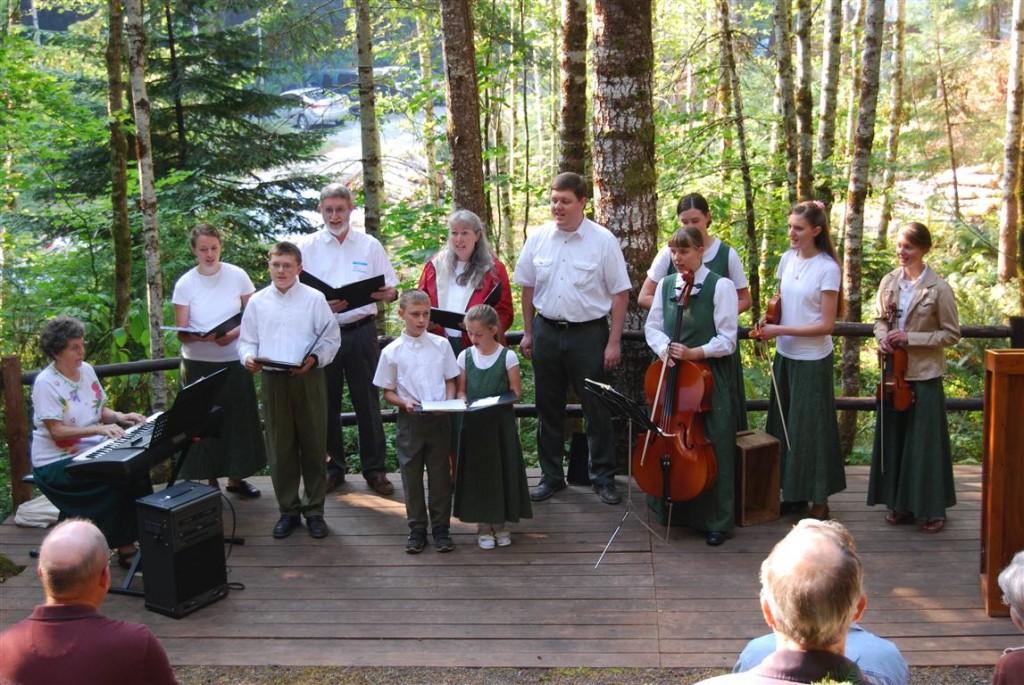With our oldest son preparing for college, it makes me wonder: “Have I been faithful to teach him everything he needs to know, to be a godly man?” If not, is it too late? And if I have, am I making sure that the other four kids are also learning what he has learned?
A couple of weeks ago, Kathy was listening to some parenting sermons, and she asked me what our family values are. Apparently one of the preachers advocated coming up with a list of core principles that everyone in the family should know. When I didn’t leap into action, she whipped up a quick list … but since I didn’t write it myself, I was hesitant to embrace it. As much as I have tried to ignore this question, it keeps niggling at my subconscious.
What are our family values? What makes us special as Edgrens?
- Don’t eat Dad’s Nutella.
- If you use up the toilet paper, go get another roll.
- Don’t wake Rachel before 10 am.
- Always give your Starbucks cards to Mom.
- Leftovers are never left over.
- The family that sings together, has more fun.
- There’s nothing quite as special as that bond between a boy and his frisbee.
- If we do it twice, it is a tradition!
Hmmm. Maybe this first list of values needs a little work.
Over Christmas last year, we had the opportunity to celebrate my parents’ 50th anniversary with Kathy’s mom, my brother, my sister, and their families. It made me think about my children, and how who they are is defined (at least in part) by the extended family we belong to.
So, really, what are our family values? I think there certainly is no doubt about the #1 value. Kathy and I have both been deeply influenced by the Westminster Shorter Catechism, which begins: “What is the chief end of man? Man’s chief end is to glorify God, and to enjoy him forever.” I think we would say that our core family value is that we seek to be reconciled with God through the blood of Jesus, which was shed for us for the remission of our sins, so that we can glorify God and enjoy Him forever. For that reason we have taught each of our children the gospel at a very young age, and each of them has chosen to follow Jesus. That’s what Edgrens have done for generations, now, and that’s what we intend to keep doing, as a family and as individuals. We seek to live out Deuteronomy 6:5:
Love the LORD your God with all your heart and with all your soul and with all your strength.
But (at least when it comes to writing a blog about them) that is sort of a cheater value — it ought to be the core value of any family. What else do I want my children to know, deep in their bones, before they leave the home?
Kathy’s list (edited by me, of course) seems a good place to start:
- Be obedient to the Scriptures
- Joyfully serve others — use your spiritual gifts
- Respect others
- Allow the Holy Spirit to work in your life — display love, joy, peace, patience, kindness, goodness, faithfulness, gentleness and self-control
- Love children
- Pursue Holiness
- Choose a godly spouse in a godly way
- Live as ambassadors for Christ
- Love the Bible and have a good understanding of church doctrine
- Submit cheerfully to those in authority over you
Strangely, the next value that comes to my mind, after loving God, is humor. Kathy and I love to laugh, and we take great joy in many of the twists and turns of our lives. We greatly value the ability to find and share joyful humor with others, and continually seek to hone the skill of laughing at our own foibles as an effective antidote to pride or despair. Laughter and joy are a big part of the glue that holds us together as a couple and as a family — I really want my children to know how to find and promote joy and humor in their lives and in the lives of the people around them, before they leave our home.
What about you? What do you seek to instill in your children?
Tim
















